
A surprise sighting: Ukraine’s stranded research vessel
En route to Punta Arenas, near the tip of Chile’s southernmost Patagonia region, our research vessel Polarstern took us past some spectacular places: for example, Aspland Island near the Antarctic Peninsula, an important bird area supporting large colonies of chinstrap penguin and southern fulmar. We then steamed past Elephant Island (named for its physical resemblance to an elephant head), famous for having hosted the explorer Ernest Shackleton and his crew in 1916, when they took refuge after losing their vessel Endurance in the ice of the Weddell Sea.
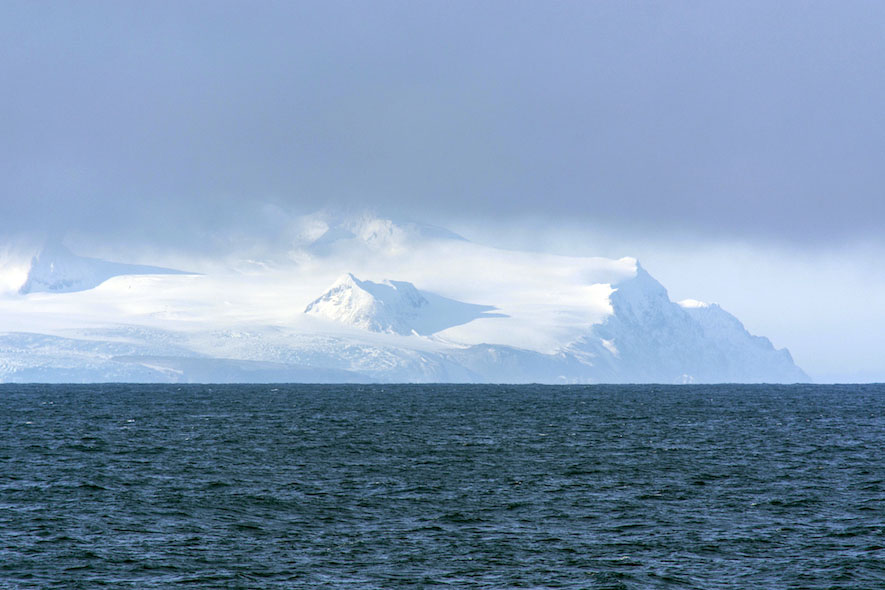
We finished our Antarctic expedition at the end of April, and our stopover in Punta Arenas was to be our last before we head all the way back to the vessel’s home port of Bremerhaven in Germany – a 32-day trip across the Atlantic with a brief stopover in the Canary Islands, where a new group of scientists and students will come aboard.
2MB field notes from Antarctica
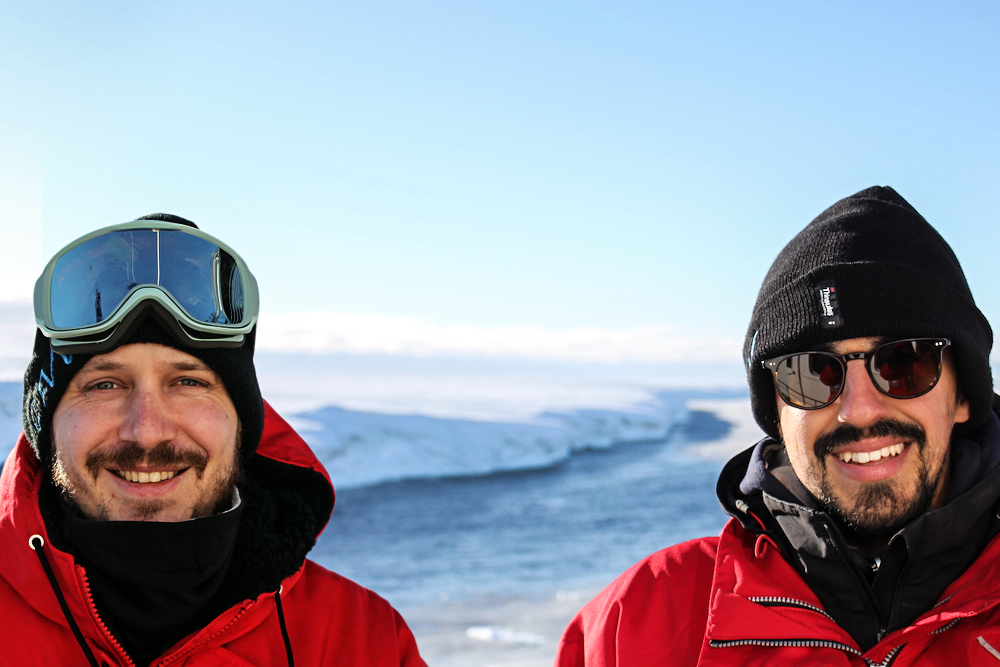
Just 2MB a day?! That’s the data limit for the authors of our polar blog. This spring, Gabriel Erni Cassola (right) and Kevin Leuenberger (left) from the University of Basel are on board the German icebreaker “Polarstern” in the Southern Ocean. The researchers want to find out how animals and bacteria in the Antarctic are affected by microplastics. In this blog series they give us insight into their work and life on board a polar expedition.
But for now, still in Punta Arenas: and much to our surprise, a red and white icebreaker we recognised was anchored in the roadstead next to us. For more than 30 years, this supply and research ship was operated by the British Antarctic Survey and named after the polar explorer James Clark Ross. Now the ship is called Noosfera and has been sailing under the Ukrainian flag since it was sold in 2021.
The Noosfera had been on Ukraine’s first mission to Antarctica in 20 years, and despite the difficulties that arose since the Russian invasion in late February, it managed to deliver supplies to the Ukrainian and Polish research stations and took on board the crew who were spending the winter there.
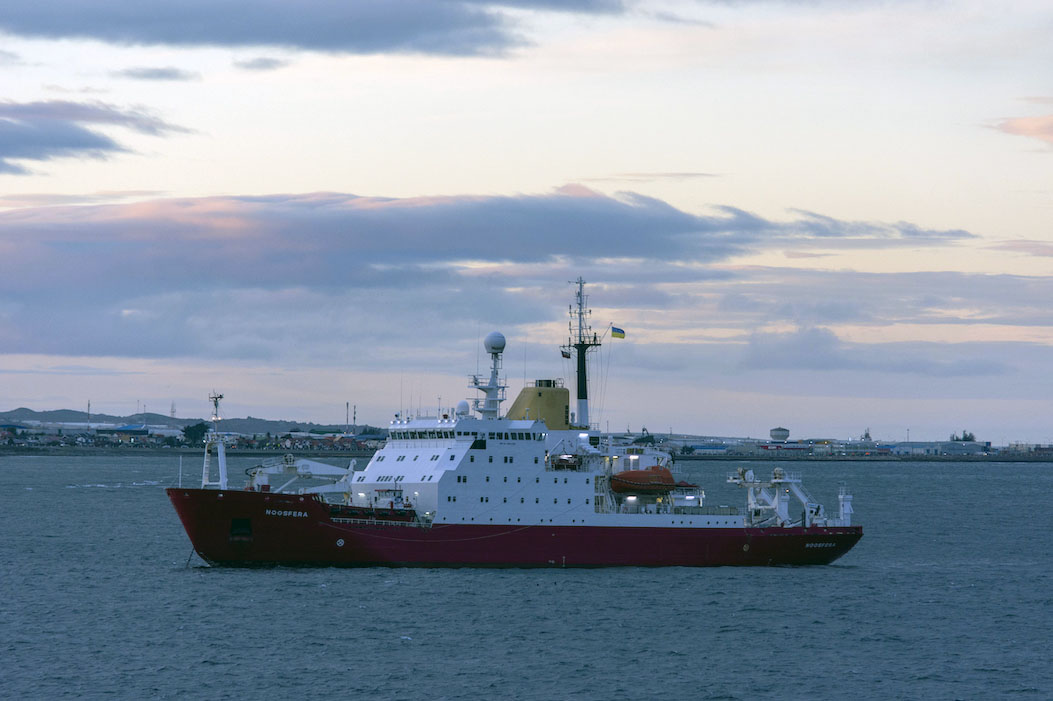
However, the Noosfera had been stuck in Punta Arenas since the end of April, uncertain about when she would return to her home port of Odessa. That was when we encountered her. The research vessel and its crew have since moved to the Falkland Islands and are currently preparing to head to South Africa, to the port of Cape Town, where they will be given a temporary home. The ship will remain in the southern hemisphere until the end of the war, according to the National Antarctic Scientific Center of UkraineExternal link.
May the Noosfera and her crew return home safely soon – and may their most important discoveries still lie ahead!
Scroll down to read earlier entries from Gabriel and Kevin. To receive future editions of this blog in your inbox, sign up for our science newsletter by putting your e-mail address in the field below.

More
2MB field notes from Antarctica
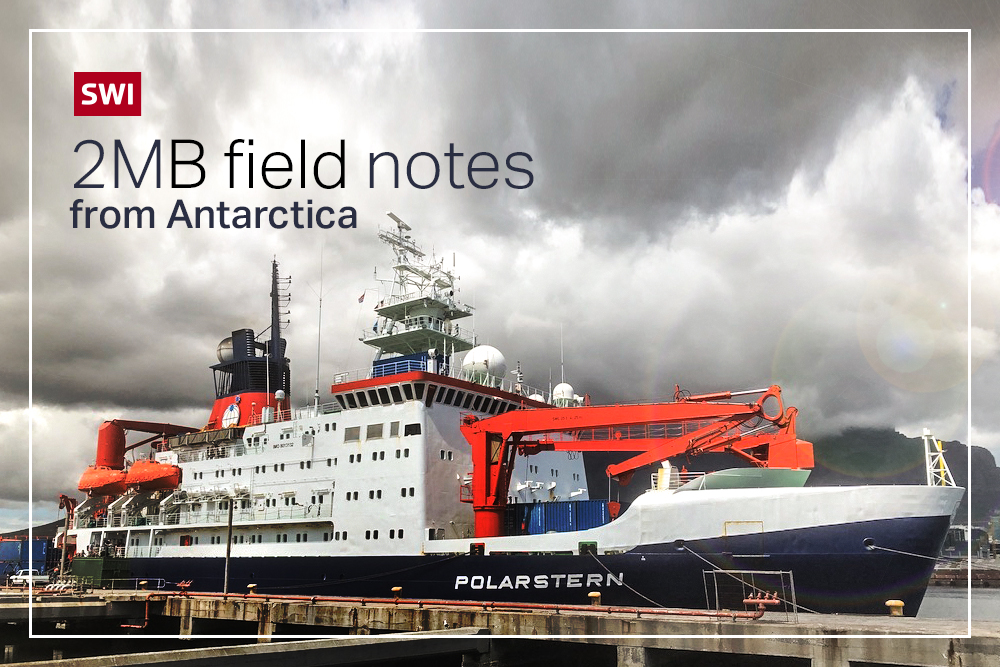
More
Why are we looking at plastic pollution in the Antarctic?
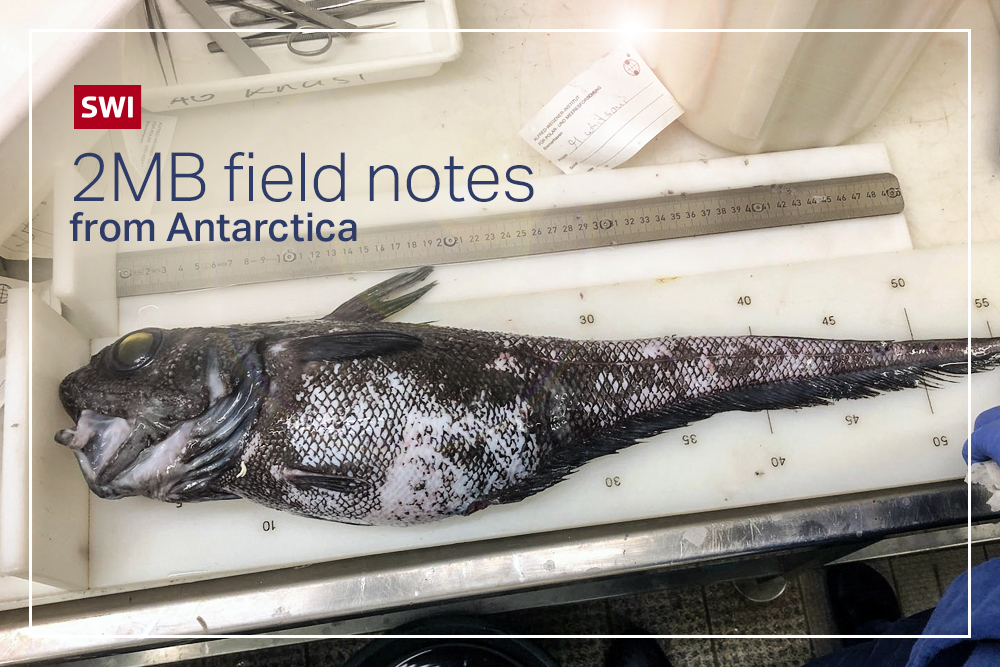
More
Is plastic on the menu of Antarctic fish?
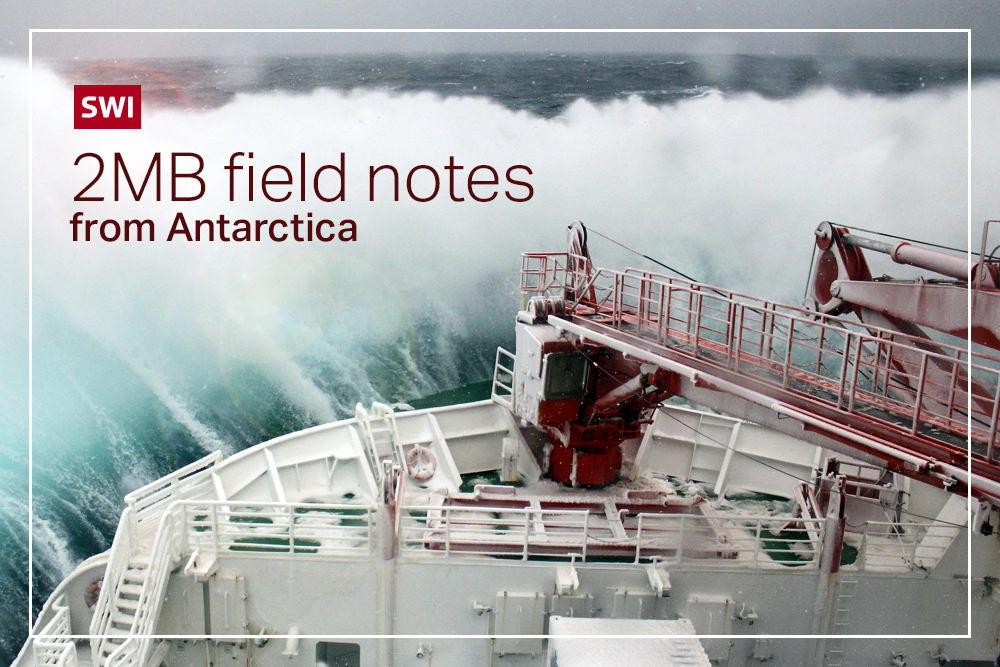
More
When storm ‘Gabriel’ hit the Weddell Sea
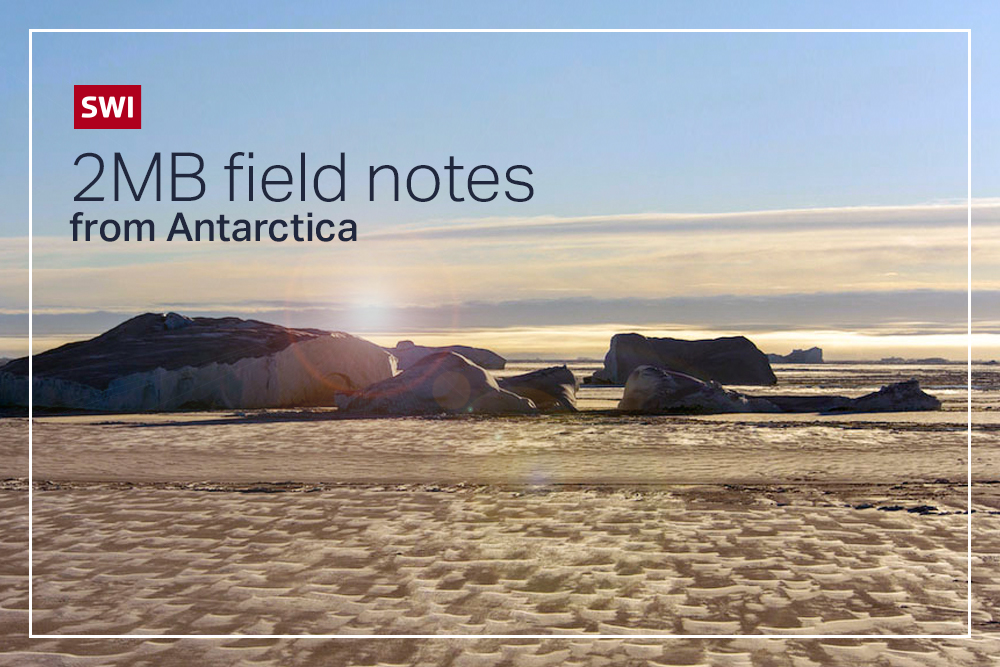
More
Microplastics research in the Antarctic often requires creative solutions

In compliance with the JTI standards
More: SWI swissinfo.ch certified by the Journalism Trust Initiative






























You can find an overview of ongoing debates with our journalists here . Please join us!
If you want to start a conversation about a topic raised in this article or want to report factual errors, email us at english@swissinfo.ch.